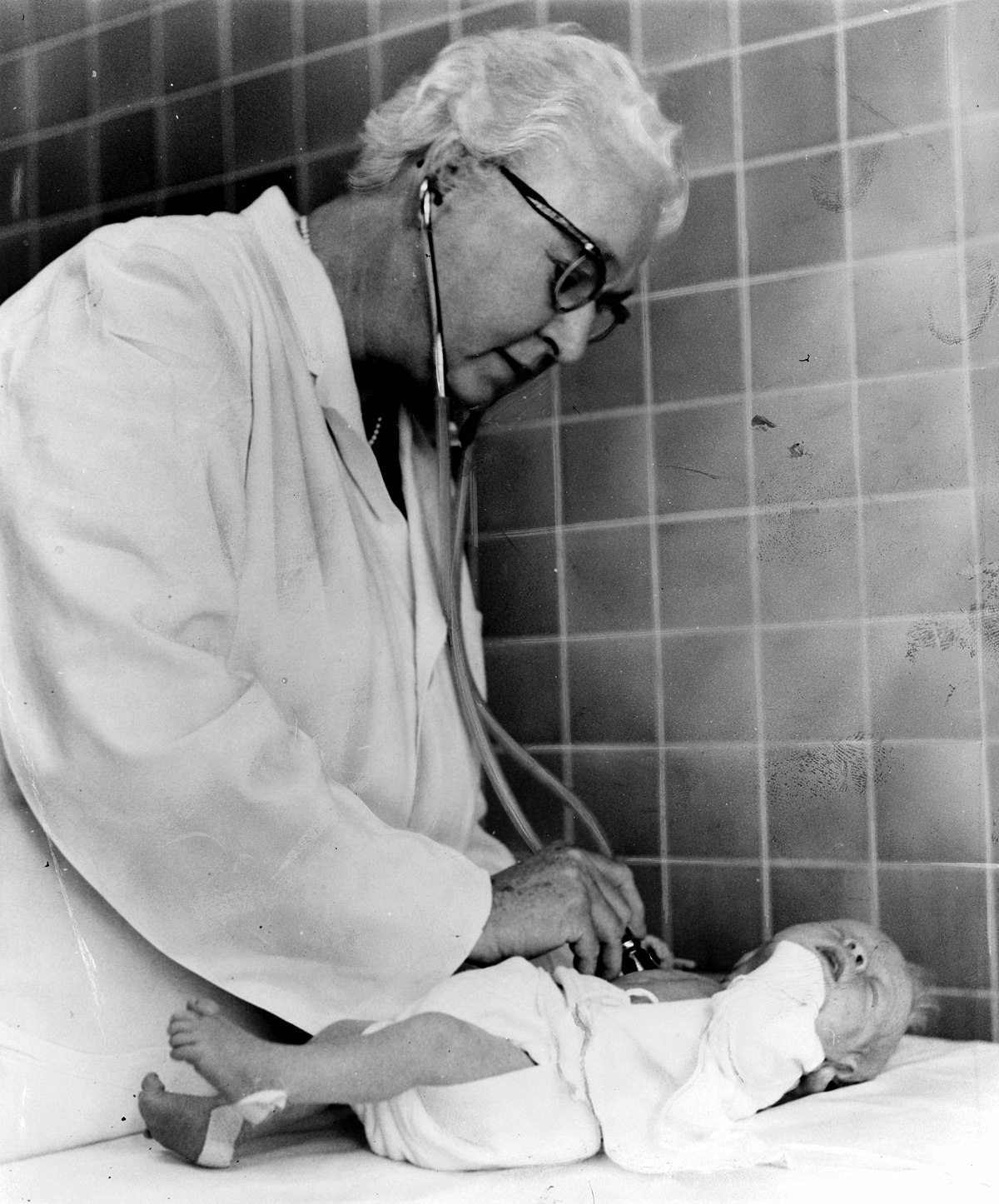Today in reading the headlines...
-
22 characters is too short for tag. Anyhoo.
Apparently friends and family discounts apply in sentencing too.
-
One can only hope!
-
Isn’t that how most tests work?

-
@DogsB said in Today in reading the headlines...:
Isn’t that how most tests work?
It's not how they are supposed to work. There are two general categories of activities that one can do to prepare for a test:
- Do practice tests
- Learn the subject
A good test will fail those how are very familiar with the test format and pattern of questions, but don't have very many skills that would apply to the field being tested.
A poor test will fail those who have the skills being tested, but struggle with the format, presentation, and/or obscure topics that might be on the test.
Good tests are difficult to create and labor intensive to grade. Good tests might have a practical component, might have questions chosen from a massive pile of potential questions, and might have questions with no "leading information". For example, multiple choice questions leave the avenue of tracking back from the given answers where the same question asked as a fill-in-the-blank won't.
Any test that one can effectively prepare for by practicing the test rather than the skill, will simply select those with the time and money to do the specific test.
The ultimate example of a bad test would be one where the exact same test is given every time, and those that are able to obtain a copy before hand can easily pass regardless of knowledge or skill.
This article is simply pointing out that this a bad test.... your point may very well be that most other tests are bad too (which I don't disagree with), but doesn't invalidate the point of the article.
-
@Jaime said in Today in reading the headlines...:
This article is simply pointing out that this a bad test.... your point may very well be that most other tests are bad too (which I don't disagree with), but doesn't invalidate the point of the article.
Uh, I don't think the article is saying that at all.
“Therefore credit to the State Examinations Commission for delivering a fair paper on the day.”
“Overall, students will likely leave the hall tired yet content with a very manageable and fair paper,” he added.
“Those who had practiced their accounting and past examination questions well over the last two years, and didn’t panic under the time constraints, will be happy with this paper.”
Unless the entire article is sarcastic they are giving high praise to the test team for creating a test that was challenging yet manageable.
-
@Dragoon Yeah. I didn't read TFA, of course (
 ), but I interpreted the headline to mean practicing their skills, not practicing the test.
), but I interpreted the headline to mean practicing their skills, not practicing the test.
-
Unless I have misread the article, it seemed to imply both. Someone that knew their material and knew how they test should have done well.
-
Brian from accounts, why are you in london. You’re suppose to be in Slough.
-
@DogsB like every UK MNO except EE, Vodafone need to fix their 4G shit first.
People want reliable service everywhere, not superfast mega speed in a handful of places and dreadful service everywhere else.
Better 4G backhaul also benefits existing 5G.
-
@loopback0 said in Today in reading the headlines...:
@DogsB like every UK MNO except EE, Vodafone need to fix their 4G shit first.
People want reliable service everywhere, not superfast mega speed in a handful of places and dreadful service everywhere else.
Better 4G backhaul also benefits existing 5G.Vodafone works in the oddest places. Large swaths of south london are blackspots but you could be in an underground bar or in the middle of a field in derby and be the only person there with a signal.
-
@DogsB said in Today in reading the headlines...:
@loopback0 said in Today in reading the headlines...:
@DogsB like every UK MNO except EE, Vodafone need to fix their 4G shit first.
People want reliable service everywhere, not superfast mega speed in a handful of places and dreadful service everywhere else.
Better 4G backhaul also benefits existing 5G.Vodafone works in the oddest places. Large swaths of south london are blackspots but you could be in an underground bar or in the middle of a field in derby and be the only person there with a signal.
A lot of the issues are down to the capacity on the RAN and/or the backhaul. That's why it sucks in some populated areas and not in the middle of nowhere.
I'm not on Vodafone but one of the others. I can have full 4G signal in some areas but because the network is fucked the data connection doesn't work at all.It's definitely possible to have a mobile network that doesn't suck - EE manage it.
-
@loopback0 said in Today in reading the headlines...:
It's definitely possible to have a mobile network that doesn't suck
Even in the US? I have yet to experience one.
-
That people have terrible taste in coffee and should be put on a raft to float towards Norway?
-
Plausible.
-
@Dragoon said in Today in reading the headlines...:
Unless I have misread the article, it seemed to imply both. Someone that knew their material and knew how they test should have done well.
The article is completely useless for ascertaining whether this was a "good" or a "bad" test.
Over here in Germany, we rank test questions into three categories.Category 1 are questions you can answer by simply having learned the material by rote. "What does that formula look like?" - "What is the composition of ammonia?" - "Which reaction do you go for if you need a cis-addition to an alkene?" Simple stuff like that you can learn by simply reading a book. This category is also called the "repetition category".
Category 2 are the tasks where you have to apply your knowledge unto problems within the known boundaries. I.e. you've run into the type of problem before and simply have to use the learned skills to solve this previously unknown task. Like, for example, you know that you can create an ester by reacting an alcohol with a carboxylic acid. And now, instead of getting, say, butan-1-ol you now get butan-1,4-diol. You're then supposed to recognize that this reaction might run twice and give you a double-ester.
Category 3 are those where you now have to step out of the bounds of what the course covered. Those are the hardest kind of questions. For example, you might have learned how to calculate the moment of inertia for a single point-mass and for two point-masses at different radii. Your math course also covered integrals. You're now asked to provide a possible solution on how to calculate the moment of inertia for an arbitrary amount of point-masses.The ratio of each category in a test is supposed to be roughly 5:4:1 (with a (marginally) passing grade at 50%) so even if you don't really understand what's going on you can still (somewhat) pass if you memorize enough stuff. But the highest grades are supposed for those who are able to think outside the box.
-
@Rhywden In the US, I was taught to use Bloom's Taxonomy to evaluate the sophistication of a question or an exercise:

However, the important thing brought up here is the idea of a "practice test" and the value of practicing the test as a distinct thing from practicing the skill. If test questions are repeated or follow an easy to recognize pattern, then a question of any level can be reduced to the "Remember" layer.
This is why it's important to have a test where the practicing the test is utterly worthless. If it isn't, then the test taker that use practice tests have reduced the test to a recall effort. Someone's going to say "well, all the takers should practice the test, that way no one has an advantage". This is true, but it's not about one student having an advantage over another, it's about only passing students that actually know the subject. If much of the test can be reduced to memorization, then the test is only testing the amount of effort the student is willing to put in and isn't testing subject knowledge.
It also doesn't matter that the person interviewed said that "both are valuable". If practice tests are valuable, then the test is crap... period. A test like this simply encourages effort to go to waste (the questions and answers remembered will be short term and will provide almost no long-term value) and money (for the practice test itself) to go to third parties.
-
*glances at @Jaime's post*
Oh, it's that OSI layers nonsense again, isn't it?
-
@Rhywden said in Today in reading the headlines...:
with a (marginally) passing grade at 50%
If only the US's testing standards were made of the same kind of sense. Most grading schemes here put failure at anything below 70%, from what I've seen. Both in individual tests and in overall class scores.
-
@Zerosquare said in Today in reading the headlines...:
*glances at @Jaime's post*
Oh, it's that OSI layers nonsense again, isn't it?
A pussy so tight no dick penetrates.
Now what was that useful for again?

-
@e4tmyl33t It's more or less irrelevant what the average is. A harder test means a lower average, an easier test means a higher average.
-
@jinpa Do you adjust the pass threshold to the difficulty of the test, or the difficulty of the test to the "standard pass threshold"? If you can't answer that question, then the passing grade itself is irrelevant.
-
@topspin said in Today in reading the headlines...:
@Zerosquare said in Today in reading the headlines...:
*glances at @Jaime's post*
Oh, it's that OSI layers nonsense again, isn't it?
A pussy so tight no dick penetrates.
Now what was that useful for again?

I can feel a hymen grow when I see the words “OSI layers”
-
@Jaime You decide what percent you want to pass, and adjust the pass threshold accordingly, after the test has been given, AKA "a curve".
-
@jinpa said in Today in reading the headlines...:
@Jaime You decide what percent you want to pass, and adjust the pass threshold accordingly, after the test has been given, AKA "a curve".
I’ve heard that’s routinely done in the US. I think that is very questionable, at least.
Why should my results change depending on if all the classmates are geniuses or morons?
-
@jinpa said in Today in reading the headlines...:
@Jaime You decide what percent you want to pass, and adjust the pass threshold accordingly, after the test has been given.
Now you've invented "professional relativism" and all of your accountants are as smart or dumb as your population. Interesting side-effect: if you stop teaching math at all levels of school, you won't have any fewer people passing the accounting exam, which will be used to prove that "math education doesn't work".
-
@topspin said in Today in reading the headlines...:
Why should my results change depending on if all the classmates are geniuses or morons?
Be the smartest one in the class and set the curve, problem solved.
-
@topspin said in Today in reading the headlines...:
Why should my results change depending on if all the classmates are geniuses or morons?
More interesting question: how do you compare the capability of two teachers, or two curricula if the outcome is fixed?
-
@Jaime said in Today in reading the headlines...:
@topspin said in Today in reading the headlines...:
Why should my results change depending on if all the classmates are geniuses or morons?
More interesting question: how do you compare the capability of two teachers, or two curricula if the outcome is fixed?
Issues with tests aside.
Give both classes a test from an independent third party and the class with the test results falling at or better then the bell curve is the better teacher.
-
@topspin said in Today in reading the headlines...:
@jinpa said in Today in reading the headlines...:
@Jaime You decide what percent you want to pass, and adjust the pass threshold accordingly, after the test has been given, AKA "a curve".
I’ve heard that’s routinely done in the US.
AFAIK, it is only done at the higher level (more competitive) universities.
I think that is very questionable, at least.
I think it is very logical.
Why should my results change depending on if all the classmates are geniuses or morons?
Why should your results change depending on how hard the test is, or how hard the prof thinks the test is?
-
What is the purpose of the test?
Finding out the best x% of students (i.e. a contest)?
Or finding out if students have the required level of knowledge/ability (i.e. an exam)?In the first case, grading on a curve could be defensible (but using percentiles instead would be equivalent and more transparent).
In the second case, it isn't. Setting your selection criteria after you have the data is considered bad science at best, scientific fraud at worse.
-
@Dragoon said in Today in reading the headlines...:
Be the smartest one in the class and set the curve, problem solved.
And then everyone hates you.
-
@jinpa said in Today in reading the headlines...:
I think it is very logical.
This entire discussion should show that it is pretty difficult to evaluate skill. Unfortunately, rather than admit that and bemoan the state of modern education while suggesting ways that things could be better, some here are digging their heels in and rationalizing what schools and certification bodies tend to do today.
Of course it is very difficult to create a proper exam. I posit that the current state of education was mostly created as a way to minimize effort put into testing so more effort can be put into teaching. Although noble, this has created a state of affairs where no one really can rely on the skill of someone else without seeing years of their work. We see this in medical malpractice, and in new hire developers that may or may not be able to code their way out of a paper bag. The very fact that celebrity endorsements actually sell products shows that we're utter hopeless when it comes to evaluation and we've simply come to accept it and decide what third party we should trust -- and we do a really bad job of that.
-
@Jaime said in Today in reading the headlines...:
@jinpa said in Today in reading the headlines...:
I think it is very logical.
This entire discussion should show that it is pretty difficult to evaluate skill. Unfortunately, rather than admit that and bemoan the state of modern education while suggesting ways that things could be better, some here are digging their heels in and rationalizing what schools and certification bodies tend to do today.
This is the kind of attack that people make to avoid rational discussion.
-
@Dragoon said in Today in reading the headlines...:
Give both classes a test from an independent third party and the class with the test results falling at or better then the bell curve is the better teacher.
We tried this:
It turned out that it was an overwhelming temptation to coach the students on the test - or in the most extreme cases, to help them cheat. Once again, this goes back to the fact that poor tests encourage a climate of concentrating on the test instead of concentrating on the skill.
Also, in order to evaluate the teacher, you need to account for the fact that two teachers are teaching different students, so this method only works if you have a very large student sample for each teacher and have accounted for the most influential externalities like household income and parental education.
-
@topspin said in Today in reading the headlines...:
Why should my results change depending on if all the classmates are geniuses or morons?
I had a conversation about it with a professor not long ago. I told him that grading this way makes grades meaningless, because they are different for different groups, which means also different on different dates. Effectively they are also not grades for individual work/achievement, but for external factors outside of individual's influence, which is simply unfair.
He was shocked. He's a university professor for 35 years and it never occurred to him

-
@Dragoon said in Today in reading the headlines...:
@Jaime said in Today in reading the headlines...:
@topspin said in Today in reading the headlines...:
Why should my results change depending on if all the classmates are geniuses or morons?
More interesting question: how do you compare the capability of two teachers, or two curricula if the outcome is fixed?
Issues with tests aside.
Give both classes a test from an independent third party and the class with the test results falling at or better then the bell curve is the better teacher.
Not really. The last years I regularly taught three classes the same topic in the same year. I covered the same topics and they got the same tests.
Our grading system goes from 1 to 6. A 1 is the best grade, a 4 is passsing grade, 5 means you failed and a 6 means that you failed epically.
This year, one of the three classes had an average of 2.1 in the first exam, the second had an average of 2.9 and the 3rd one of 3.6
Your assumption relies on an evenly distributed amount of skill and diligence among the classes. It also ignores class dynamics which can play a huge role in the overall performance of a class. Sometimes you just need one clown to completely throw your preparations in disarray.
-
@MrL said in Today in reading the headlines...:
@topspin said in Today in reading the headlines...:
Why should my results change depending on if all the classmates are geniuses or morons?
I had a conversation about it with a professor not long ago. I told him that grading this way makes grades meaningless, because they are different for different groups, which means also different on different dates. Effectively they are also not grades for individual work/achievement, but for external factors outside of individual's influence, which is simply unfair.
He was shocked. He's a university professor for 35 years and it never occurred to him

Yeah. My course on Physical Chemistry relied on a final exam to pass. They created an exam covering the topics we had done throughout the semester and then gave this exam to a guy not from our course but who had knowledge of the topic. They then set the "100%"-score on the amount of point this guy achieved.
I got a 120% in that exam simply because I was way better than that guy. Now imagine had it been the other way around.
-
@Jaime said in Today in reading the headlines...:
@jinpa said in Today in reading the headlines...:
I think it is very logical.
This entire discussion should show that it is pretty difficult to evaluate skill. I posit that the current state of education was mostly created as a way to minimize effort put into testing so more effort can be put into teaching.
Yes, because no one in academia ever had this idea. There are actually quite a number of people in academia highly critical of how "skill" is measured.
It's also why condensing the whole shebang into a singular number like the US' GPA or the German Abiturnote is a rather stupid idea because it's only loosely related to what you actually want to get. But it's nice and easy and convenient so that is why we're using such grading schemes.
Just to give you an example of how absurd it actually is: Imagine you arrive at the hospital with a medical issue and you're told by the doctor: "Well, your health is 4 out of 10!" and nothing more.
-
@Rhywden said in Today in reading the headlines...:
Just to give you an example of how absurd it actually is: Imagine you arrive at the hospital with a medical issue and you're told by the doctor: "Well, your health is 4 out of 10!" and nothing more.
Sounds perfectly fine for basic insurance. More detailed info available if you buy premium.
(Premium Plus also includes treatment).
-
@Kamil-Podlesak I have long thought that diagnosis and recommended treatments should be done by different people and organizations than the ones who actually perform the treatment. (Same goes for auto and home repair.)
Imagine if there were no rules against conflicts of interest for stockbrokers and other financial advisors.
-
@Zerosquare said in Today in reading the headlines...:
bad science at best, scientific fraud at worse.
In short - science.

-
@Rhywden said in Today in reading the headlines...:
Just to give you an example of how absurd it actually is: Imagine you arrive at the hospital with a medical issue and you're told by the doctor: "Well, your health is 4 out of 10!" and nothing more.
-
@Gustav Apgar is just a quick — a few seconds — assessment of whether this is a healthy baby we can give to its mother or this is a sick baby who needs immediate intervention to save its life. If it's sick, the Apgar score certainly isn't the only information given to its family.
-
-
A “ Unique membership number ”! Where do I sign up!
-
We should do the same. A bright red ring, with your WTDWTF member ID engraved on it. It'd mean "don't talk to me and go away".
Paging @apapadimoulis
-
I already don't wear a ring, shouldn't that ...
Wait, I ranted about this before.

Anyway, when's the next time we can get a
 mug?
mug?
-
@topspin said in Today in reading the headlines...:
Anyway, when's the next time we can get a
 mug?
mug?If you send him a half-pound silver coin, I'm pretty sure he will gladly send you a mug.
-
@Rhywden said in Today in reading the headlines...:
Sometimes you just need one clown to completely throw your preparations in disarray.
Sadly, this does not work the other way round (one genius to get them to high performance).
-
@jinpa said in Today in reading the headlines...:
If you send him a half-pound
silver coinbox of Salmiakki, I'm pretty sure he will gladly send you a mug. for
for 





 Titan Voyage Log Reveals Crew Spent Final Moments On Phone Looking At Cruel Memes
Titan Voyage Log Reveals Crew Spent Final Moments On Phone Looking At Cruel Memes


 Apgar score - Wikipedia
Apgar score - Wikipedia


